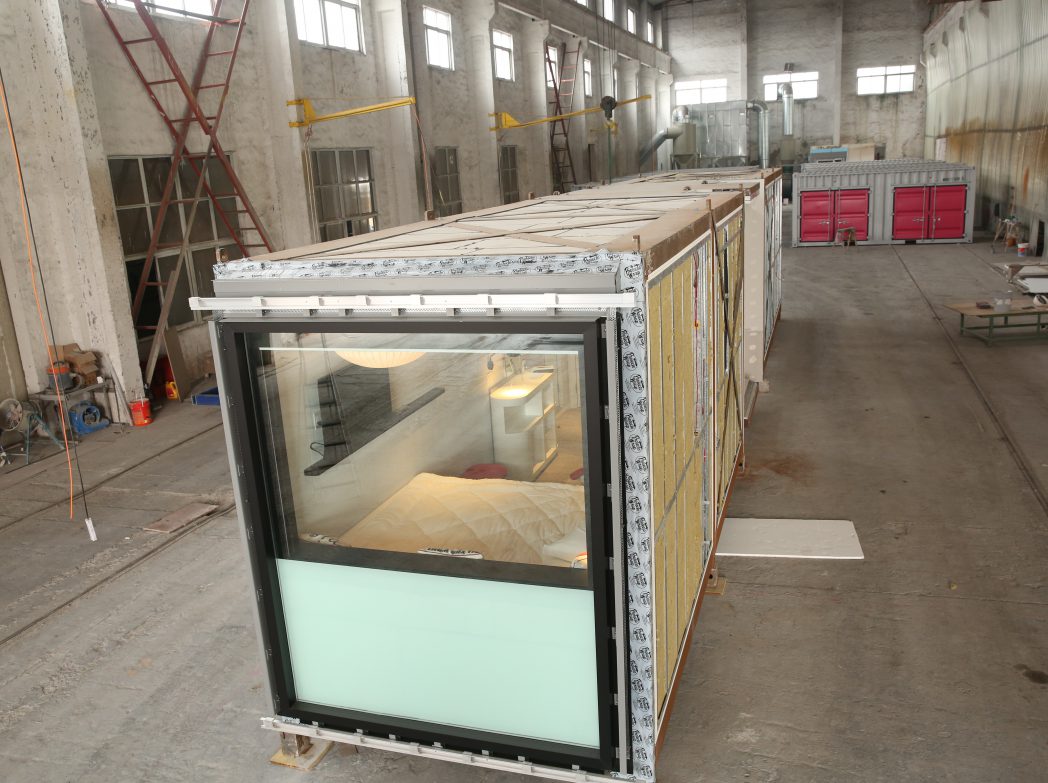Cold-formed steel (CFS) is revolutionizing the way we think about construction, particularly in modular home factories. For those not deeply entrenched in the modular construction industry, understanding CFS can seem daunting, especially to those factory people using the more traditional lumber-framed modules. However, its benefits and uses are straightforward and impressive.

all photos – Stack Modular
What is Cold-Formed Steel?
Cold-formed steel members are crafted from high-quality sheet steel that is shaped into C-sections and various other profiles using a process called roll forming. This technique involves passing the steel through a series of dies without the application of heat, which is why it’s termed “cold-formed.” Unlike hot-rolled steel, which involves heating the metal, CFS is created at room temperature, resulting in unique properties that make it highly versatile.

.
The Value-Benefits of CFS
Cold-formed steel offers a myriad of advantages that make it an attractive option for construction, especially in modular home factories:
Durability and Resilience: CFS doesn’t shrink, split, or absorb moisture. It’s resistant to warping, termites, and fire, which significantly extends the lifespan of structures built with it.
Consistency and Quality: Being a uniformly manufactured product, CFS boasts consistent quality, leading to less waste and scrap. Any waste produced is entirely recyclable, enhancing the material’s sustainability.
Cost Efficiency: The fire resistance of CFS can lower insurance costs for builders. Additionally, its strength allows for fewer materials to be used without compromising structural integrity.
Environmental Friendliness: CFS contains at least 25% recycled content and is 100% recyclable at the end of its life. It emits no volatile organic compounds, making it a green building material choice.
Versatility in Harsh Conditions: Its strength and ductility make CFS ideal for areas prone to high winds or earthquakes. A study by the National Association of Home Builders (NAHB) Research Center demonstrated that the zinc coating on CFS can protect against corrosion for hundreds of years.
On the Production Line with CFS
The construction process itself benefits greatly from using CFS. Its lightweight nature makes it easy to transport, handle, and assemble. Here are some key advantages on the production line:
Efficiency in Material Use: The superior strength of CFS allows for wider spacing between studs. For instance, CFS can be installed on 24-inch centers instead of the traditional 16-inch centers, reducing the number of studs needed.
Ease of Installation: Manufactured to precise standards, CFS is ideal for making panels and trusses that are light and easy to install, often requiring fewer workers.
Speed and Precision: Prefabricated CFS panels be formed with pre-punched holes, facilitating rapid installation of mechanical, electrical, and plumbing systems post-framing on the production line.
This approach reduces the reliance on skilled labor on the production line and allows for expert design and layouts, further speeding up the assembly process.
Training for CFS Construction
Training production line staff to work with CFS is relatively straightforward. Experienced framers can quickly adapt to working with steel instead of wood. They use similar techniques but with different tools and fasteners. For example, instead of wood studs, they use steel C-section studs, and instead of nails, they use screws or pins designed for steel connections.
The basic tools required for CFS framing are also not extensive. A typical set includes:
- Adjustable-torque screw guns
- Bits and bit holders for structural connections
- Hand seamers for positioning and bending steel
- Chop saws
- Pneumatic pin-nailers for steel connections
- Clamps, aviation snips, swivel-head electric shears, and magnetic levels
Cold-formed steel is proving to be a valuable asset in the construction of modular homes. Its durability, cost efficiency, environmental benefits, and ease of use make it an increasingly popular choice among builders. As more professionals become familiar with its advantages, CFS is likely to play an even greater role in the future of construction, particularly in modular housing where precision, speed, and sustainability are paramount.
.
CLICK HERE to read the latest edition
Contact Gary Fleisher












